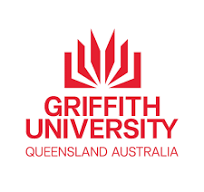
MASTER OF ENVIRONMENT


Overview
2 YEARS
YES
AU $41,000 PER YEAR
FEB, JULY, NOV
Overview
> This degree provides training for people who wish to help to make society more sustainable. It also provides opportunities for those who want to move into more senior management positions. You will develop the ability to work in multidisciplinary teams, to contribute to policy-making processes and to run environmental management systems.
Majors
> Climate Change Adaptation
> Economics and Policy
> Environmental Planning (Nathan on-campus only)
> Environmental Protection
> Sustainable Business
Related degrees:
> Graduate Certificate in Environment – 3212
Professional recognition:
> Graduates of this program are eligible for membership of the Environment Institute of Australia and New Zealand and may subsequently apply for registration as a Certification as Environmental Practitioners (CENVP).
Attendance information:
> The program is offered full-time and part-time, both on-campus (at Nathan) with some majors available online.
> If you are an International student on a student visa, you must ensure that you enrol in a way that will allow you to complete your enrolment within the expected program duration as stated on your Confirmation of Enrolment (CoE)
My career opportunities:
> Climate Change Adaptation: You will be equipped with the skills and knowledge needed to work in the areas of environmental climate change and policy-making. You may find work in the public sector, business or community organisations as an environmental assessment officer, project officer, project manager or policy officer.
> Economics and Policy: Addressing the challenge of sustainability has created employment opportunities in environmental economics and policy making across the business, government and community sectors. You may find work as a policy officer, policy advisor, environmental assessment officer or management consultant.
> Environmental Planning: With this specialisation in planning theory, practice and law you may find employment in a city or regional planning office, or as an environmental consultant or environmental project manager. Jobs in this field are available across a range of public and private sectors.
> Environmental Protection: You will be equipped with the essential skills in environmental protection policy and practice needed to work in consulting firms and in government agencies, such as the Department of Natural Resources and Mines, and the Australian Quarantine and Inspection Service. Your work will be focused on improving environmental management, quarantine and biosecurity outcomes in careers such as environmental monitoring and compliance officer, environmental assessment officer or project officer.
> Sustainable Business: Green jobs, and businesses, are increasingly recognised as important. Incorporating environmental issues into business trending toward not just being an option but also a requirement for many companies. With this specialisation you will be equipped with the skills and knowledge needed to assist with organisation change toward sustainability goals, and thus sought after by a wide range of private and public organisations.
Inquire Now
Entry Requirements
> To be eligible for admission to the Master of Environment, a student must hold:
> a Bachelor degree from a recognised University (or another tertiary education institution of equivalent standing) with applicants normally having achieved a minimum Grade Point Average (GPA) of 4.5 (using a 7.0 scale) in the Bachelor degree
> OR a Bachelor degree in Environmental Science from a recognised University (or another tertiary education institution of equivalent standing) with applicants normally having achieved a minimum Grade Point Average (GPA) of 4.5 (using a 7.0 scale) in the Bachelor degree (these students will be eligible for 40 credit points of advanced standing towards the program)
> OR the Graduate Certificate in Environment (3212) (these students will be eligible for 40 credit points of advanced standing towards the program)
> OR a Bachelor Honours degree in Environmental Science from a recognised University (or another tertiary education institution of equivalent standing (these students will be eligible for 80 credit points of advanced standing towards the program).
> English language requirements apply to International applicants and other applicants whose previous study was undertaken in a language other than English. The minimum English language requirements for such applicants for entry to this program are as follows:
> A minimum overall band score of 6.5 on IELTS (Academic) with no sub-score of less than 6.0
> OR a minimum score of 575 on TOEFL
> OR an internet-based (iBT) TOEFL score of 79 (no sub-score less than 19)
> OR no score less than 3+ in each skill of the ISLPR (conducted by ISLPR Language Services only)
> OR a minimum overall score of 176 (no score less than 169) on C1 Advanced (formerly Cambridge Certificate in Advanced English) or C2 Proficiency (formerly Cambridge Certificate of Proficiency in English)
> OR an overall score of 58 in the Pearson Test of English (Academic) with no score less than 50.
Fees
Tuition fees
*An International student pays tuition fees.
*Students are liable for tuition fees for the courses they are enrolled in as at the census date.
*The tuition fee for students who commence their program prior to 2014 is charged according to the approved program fee for the trimester in which the student commenced the program.
FEE (INDICATIVE: $41,000 per year
Scholarships
> file:///C:/Users/LANDMASRK%20EDUCATION/Documents/Scholarships%20and%20finance%20Griffith%20UNI.html
Popular Courses
Find your perfect course
Head Office
Kamaladi, Kathmandu
Tel: +977 14542781, 9845566225
E-mail: info@landmarkedu.com
Sydney office
46 Macquarie Street,
Parramatta, NSW
Tel: +61 415 122 814
Branch office
Tel: 056-590825
Tel: 021-590828
Tel: 977-71-591694



